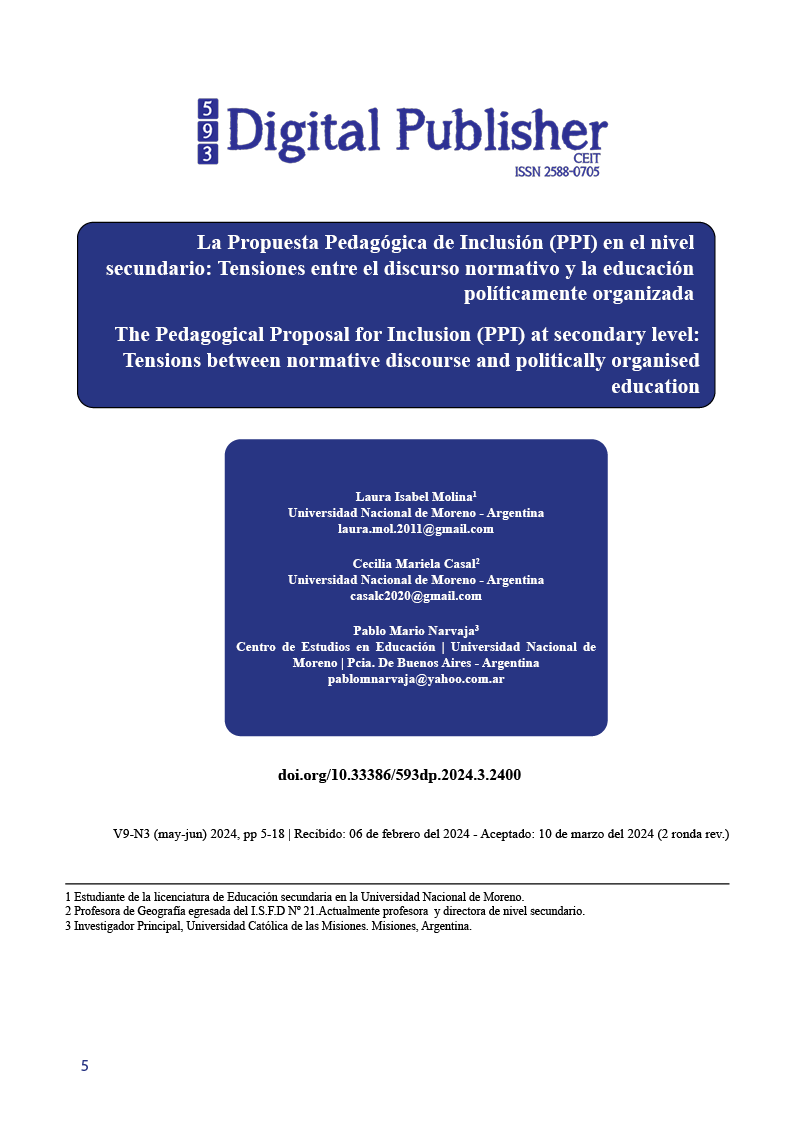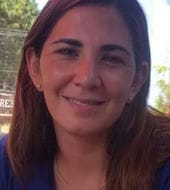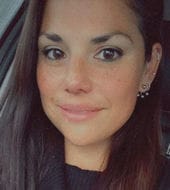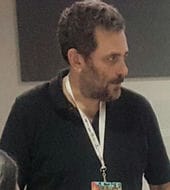The Pedagogical Proposal for Inclusion (PPI) at secondary level: Tensions between normative discourse and politically organized education
Main Article Content
Abstract
This essay examines the tension between normative pedagogy and politically organized pedagogy, critically questioning the viability of inclusive proposals for students with disabilities in secondary education in the province of Buenos Aires. It focuses on implementation conditions and how organizational dynamics impact inclusive pedagogical proposals, emphasizing the need to overcome both objective and subjective obstacles for more effective, inclusive, and quality education. Through a historical perspective on inclusion proposals, a critical analysis of current regulations, theoretical insights from various authors, and a case study confrontation, it seeks to elucidate the tensions between established regulations and the reality in everyday school life shaped by social relationships, roles, rights, and duties. Inclusion Pedagogical Proposals are tools in which different educational strategies must be established to ensure the real inclusion of students with different abilities. It should enable the organization of a coherent system with the proposed objectives, aiming to support academic paths, establish pedagogical agreements, and eliminate barriers and obstacles that constitute the existing institutional reality.
Downloads
Article Details

This work is licensed under a Creative Commons Attribution-NonCommercial-ShareAlike 4.0 International License.
1. Derechos de autor
Las obras que se publican en 593 Digital Publisher CEIT están sujetas a los siguientes términos:
1.1. 593 Digital Publisher CEIT, conserva los derechos patrimoniales (copyright) de las obras publicadas, favorece y permite la reutilización de las mismas bajo la licencia Licencia Creative Commons 4.0 de Reconocimiento-NoComercial-CompartirIgual 4.0, por lo cual se pueden copiar, usar, difundir, transmitir y exponer públicamente, siempre que:
1.1.a. Se cite la autoría y fuente original de su publicación (revista, editorial, URL).
1.1.b. No se usen para fines comerciales u onerosos.
1.1.c. Se mencione la existencia y especificaciones de esta licencia de uso.
References
Agamben, G. (2011). ¿Qué es un dispositivo? Sociológica. N°73, pp 249-264.
Bourdieu, P. (2019 ) . Curso de sociología general 1. Siglo XIX. Buenos Aires.
Bourdieu, P. (2000). Esquisse d’une théorie de la pratique. París, Editions du Seuil.
Bourdieu, P. (2007). El sentido práctico. Buenos Aires, Siglo XXI Editores.
Comenio, J. (1998). Didáctica Magna. Editorial Porrúa. México.
Foucault, Michel (1979). La arqueología del saber.México, Siglo XXI Editores.
Narvaja, P. y Baumgratz, A. (2018). El problema de la pedagogía normativa. Digital Publisher. N°3. Ecuador.
Narvaja, P. (2017). Esbozo de una pedagogía escolar. Digital Publisher. N°4. Ecuador.
Puiggrós, Adriana (dirección) (1991). Sociedad civil y Estado en los orígenes del sistema educativo argentino. Buenos Aires, Editorial Galerna.
Saccon, E. (2018). El derecho a la educación inclusiva, un título en igualdad de condiciones. Redea. N°7.
Leyes y resoluciones
Debate Parlamentario Ley 1420. Tomo I. Buenos Aires, Centro Editor de América Latina.
Ley de Educación Nacional 26.206. (2006)
Ley de Educación Provincial 13.688. (2007)
Ley de Educación Nacional 1420. (1884)
Ley Federal de Educación 24.195.(1993)
Resolución 1664/17 Dirección General de Cultura y Educación. (2017)
https://www.infobae.com/opinion/2022/11/01/discapacidad-e-inclusion-de-la-ley-a-los-hechos/ (Junio 2023)
http://servicios.abc.gov.ar/lainstitucion/sistemaeducativo/educacionespecial/normativa/circulargeneral2.pd (Junio 2023)




